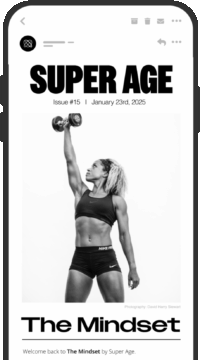Find The Best Workout for Your Personality: Take the Quiz

Your personality shapes which workouts you’ll enjoy most, and which ones deliver the biggest stress-relief benefits.
The hardest part of exercise isn’t the sweat; it’s the showing up. If you’ve ever wondered why certain workouts light you up while others feel like punishment, it may have less to do with willpower and more to do with personality.
In college, for example, I took kickboxing, and every jab and roundhouse was aimed at something concrete, like a B grade I didn’t want, or a subject I wanted to master. It was cathartic, a way to channel my fire. These days, I’m more likely to be found in a Pilates studio with a core group of friends one day, or hiking a trail or kayaking with friends another day. We keep each other accountable, cheer each other on, and push harder because we’re in it together. I love the extra support and variety to maintain my fitness routines.
Now, new research from University College London suggests that’s not just a personal quirk; it’s science.
Why Personality May Be the Missing Link in Fitness
A team of researchers recruited more than 100 people for an eight-week program. Half received a home-based cycling and strength plan, while the other half carried on with their normal routines. Before, during, and after, everyone logged how much they enjoyed different training sessions, from easy steady rides to all-out interval sprints. The researchers also measured baseline fitness and tracked stress levels to see who got the biggest stress drop from training.
Their central question: Can your personality traits, things like extraversion, conscientiousness, agreeableness, neuroticism, and openness, predict the type of exercise you’ll actually enjoy and how does that affect stress levels?
What they found out is fascinating:
- Extraverts thrive on the hardest, highest-intensity workouts, like HIIT.
- Conscientious folks log more activity overall, but don’t care much which intensity they’re doing. They’re driven by discipline.
- Neurotic types (more prone to worry or stress) dislike long, sustained efforts and see the biggest drop in stress after aerobic training.
- Agreeable personalities enjoy steady, sociable activities.
- Open-minded people preferred variety and rate all-out intensity lower.
Importantly, everyone who stuck with the program improved their fitness. The personality connection wasn’t about whether exercise “worked,” it was about which workouts people enjoyed, and who saw the strongest psychological payoff.
“Understanding personality factors in designing and recommending physical activity programs is likely to be very important in determining how successful a program is,” said senior author Prof. Paul Burgess.
In other words: if you hate your workout, it’s not you. It might just not match your wiring.
Exercise Consistency Matters
Only about one in five adults meet the World Health Organization’s minimum guidelines for activity (150 minutes of moderate cardio per week plus two days of strength). And yet, regular movement is one of the most reliable levers we have for longer, healthier lives.
The problem isn’t lack of knowledge. Consistency comes when we actually look forward to moving. And when we have the fortitude to push past the moments when we just don’t want to work out. This study shows that personality-informed programming could be the missing link: if your workout feels aligned with who you are, and helps you lower your stress and increase your [ri-zil-yuhns]nounThe ability to recover quickly from stress or setbacks.Learn More, you’re far more likely to stick with it.
Which Workout Matches Your Personality?
Here’s how to identify your likely exercise personality and play to your strengths.
If You’re High in Extraversion: Thrive on Group Energy
How to know: You feel energized by people, love group settings, and often push harder when others are watching.
Do more: Group classes, team sports, partner workouts, short and intense intervals.
Make it stick: Anchor your routine to a social calendar: standing class dates, run clubs, or shared fitness challenges.
If You’re High in Conscientiousness: Structure Is Your Strength
How to know: You’re organized, goal-driven, and motivated by checking boxes.
Do more: Structured programs (strength plus cardio hybrids), [pruh-gres-iv oh-ver-lohd]nounGradually increasing workout intensity to build strength and endurance.Learn More, measurable routines.
Make it stick: Track metrics: minutes in zone, weights lifted, weekly totals. Following the plan is your fuel, just make sure the plan serves your health.
If You’re High in Neuroticism: Stress Relief Is Your Superpower
How to know: Stress hangs on you, and you may overthink your performance. But you notice an immediate lift in mood after workouts.
Do more: Private sessions, brisk walks, cycling, swimming, or interval workouts with natural pauses.
Make it stick: Journal about your mood before and after movement. Seeing your stress consistently drop is the ultimate motivator.
If You’re High in Agreeableness: Connection Fuels Your Movement
How to know: You’re cooperative, empathetic, and happiest when you’re moving with others.
Do more: Walks with friends, yoga, steady rides, community-based classes.
Make it stick: Pair movement with connection to make workouts double as social time.
If You’re High in Openness: Variety Keeps You Engaged
How to know: You’re curious, imaginative, and easily bored by routine.
Do more: A mix of yoga, trail runs, skill-based classes, or seasonal activities.
Make it stick: Rotate modalities monthly. Novelty keeps you engaged without derailing progress.
A Micro-Practice: The “Exercise Enjoyment Audit”
Want to find your personal sweet spot for your fitness routine? Borrow a trick from the researchers. After your next workout, quickly rate two things:
- Enjoyment (1–7)
- Stress shift (down / same / up)
If enjoyment is low or stress goes up, tweak just one factor next time: change the intensity, type, environment, or duration. Repeat until you find a consistent ≥5 on enjoyment and a stress drop. That’s your adherence engine.
Stick With What You Enjoy
Movement is non-negotiable for [lon-jev-i-tee]nounLiving a long life; influenced by genetics, environment, and lifestyle.Learn More. But the way you move? That can and should be personal.
If you’re an extrovert, lean into group HIIT. If you’re conscientious, build a plan and track it. If you’re neurotic, celebrate the stress relief that comes with even a short workout. And if you’re open or agreeable, design routines that feed your curiosity and connection.
The key takeaway: don’t force yourself into someone else’s version of fitness. The best workout is the one you do consistently.
Read This Next
The information provided in this article is for educational and informational purposes only and is not intended as health, medical, or financial advice. Do not use this information to diagnose or treat any health condition. Always consult a qualified healthcare provider regarding any questions you may have about a medical condition or health objectives. Read our disclaimers.

